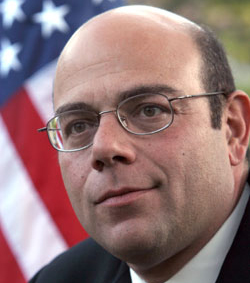BY GAREN YEGPARIAN
With the battles to eradicate the irremediable vermin known as Daesh/ISIS winding down in Iraq and Syria, other conflicts, subsumed and overshadowed by that effort are now coming to the fore. Here, I’ll try to summarize what’s going on with the Kurds in Syria, largely by way of the huge role of outside powers in this situation.
The sources of this information are non-U.S., hence they might be biased in a direction that is not every-day, customary, for most readers of this piece.
Let’s cover this country by country, although some overlap is unavoidable. Please see the accompanying map for additional clarity.
Starting with the USA is most helpful because there is quite a hue and cry over its latest actions and pronouncements. A “new” plan touting a “security corridor” in northern Syria is being touted. These Kurdish parts of Syria are currently run by the SDF (Syrian Democratic Forces). The U.S. is now training what is intended to become a 30,000 strong military force, 15,000 of which will be new recruits and the remainder will come from current SDF forces. Of course there is Washington’s longstanding desire to overthrow President Assad in another manifestation of its idiotic “regime change” shenanigans. Otherwise, the U.S. presence in Syria is somewhat opaque and its actions and intents similarly opaque.
Syria naturally and understandably doesn’t want any foreign presence, American, Turkish, or anyone else, on its territory unless it has demanded as much. Lebanon’s Hezballah, Russian military, and Iranian troops have Damascus’ seal of approval. Turkey and the U.S. are unwelcome but present. And, of course there are various rebel groupings, including the SDF, which control parts of Syria’s territory (see map). With Daesh largely defeated (as a territorial threat), attention will naturally focus on other parts of the country. It is my assumption that the Kurdish controlled areas will be last to face Damascene wrath.

Map showing Turkey’s inroads in Syria
Turkey meanwhile invaded Syria and is establishing bases there, specifically in Idlib province (which puts them in close proximity to our important Armenian community in Haleb/Aleppo). Ankara announced last fall it would build eight of them. As usual, what’s driving Turkish policy is absolute dread of Kurds. The SDF has been labeled as “terrorist” by Turkey, and is seen as nothing more than an extension of the PKK, whom the Turks loathe and fear. As a result, Erdoğan has gone on another one of his brutish, chest thumping, binges, swearing to wipe out the SDF. Damascus has responded, telling Turkey it has no business on Syrian territory and threatened to shoot down any Turkish planes that violate its air space. Meanwhile, news reports already have Turkey shooting across the border.
Russia is displeased with U.S. actions and wants the latter out of Syria. But, I get the impression Moscow doesn’t quite have a handle on exactly what the U.S. is doing now, or plans to do, in and against, Syria. While Russian presence has been reduced, there is still the big naval base in Latakia, along with some forces remaining elsewhere.
Iran is still present with in Syria and has assisted greatly in the progress the Syrian army has made in recovering and reestablishing control over areas that had fallen under rebel control.
Lebanon, besides hosting hundreds of thousands of Syrian refuges is also home to Hezballah, a political party and paramilitary group that is credited with driving Israel out of Southern Lebanon and is now a key component in Damascus’ fight against various rebel groups.
Israel is reported to have conducted some forays into Syrian territory and is said to be treating injured fighters from anti-government groups, even Daesh. Some of this seems hard to believe, but remember, politics (and war) makes for strange bedfellows.
By way of conclusions, clearly, Syria wants to reassert control over all its territory, including areas currently controlled by the Kurds/SDF. Iran fully supports Syria. Russia largely supports Syria, though it’s not clear to me where they stand regarding the Kurdish north. Turkey wants to play games and become a regional hegemon, deposing Assad as Syria’s president if at all (though lately that intention seems to have been toned down), and eradicating any trace of military might among the Kurds located anywhere (a few days ago, for the first time in nine years Turkey once again invaded Iraq to attack Kurdish [PKK] forces). Israel is opportunistically doing what it can to keep its enemies weak and supposedly cooperating with Saudi Arabia. Lebanon is taking a slight beating in all this. And, finally the U.S. is acting, but given the incompetence of President Trump, it’s not at all clear to me that there is cohesive policy driving those actions.
Does anyone have any ideas as to what, if anything, Armenians should be doing in this mess? After all, we do live in the areas impacted and the countries involved there.























































